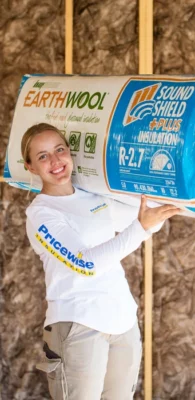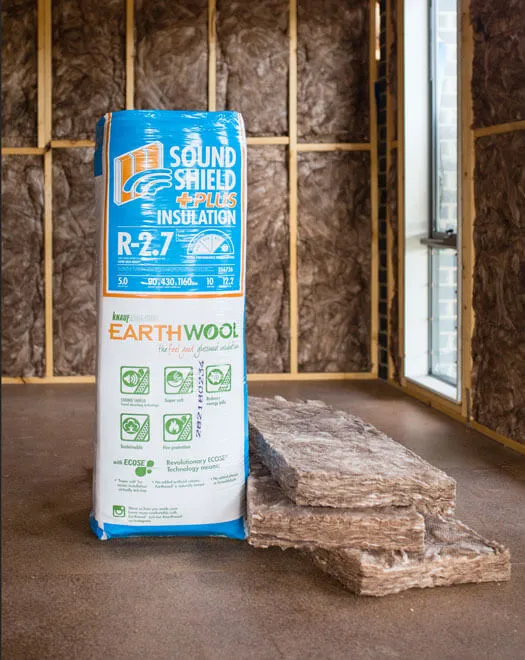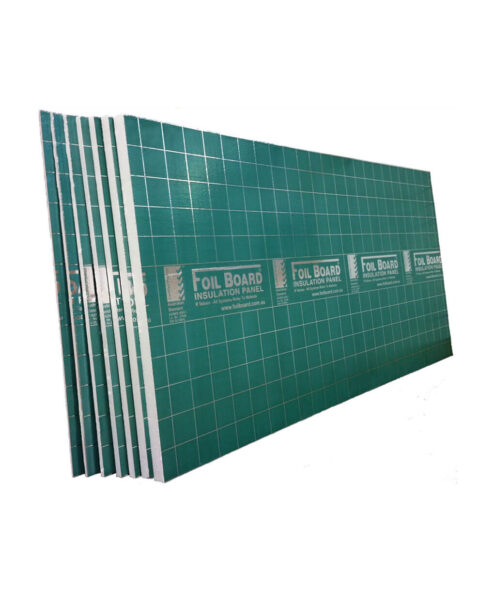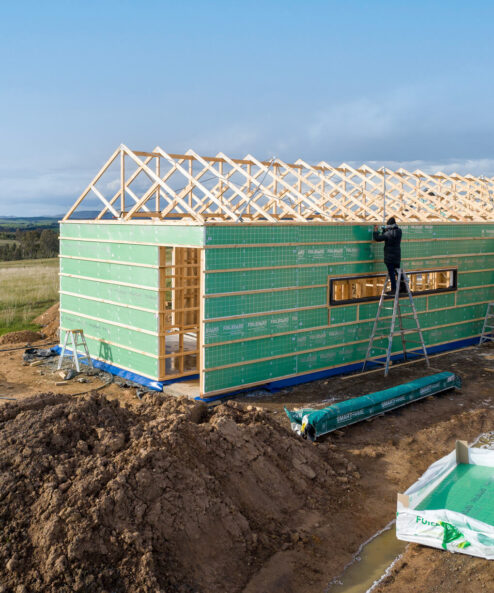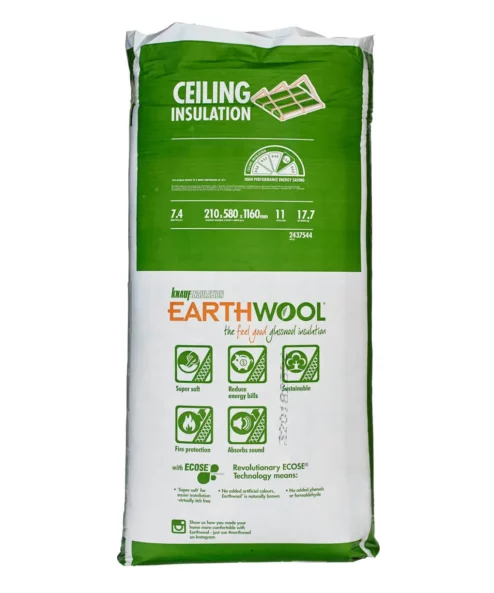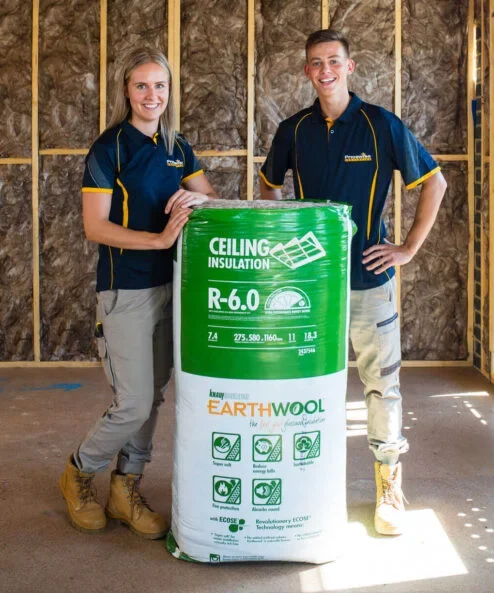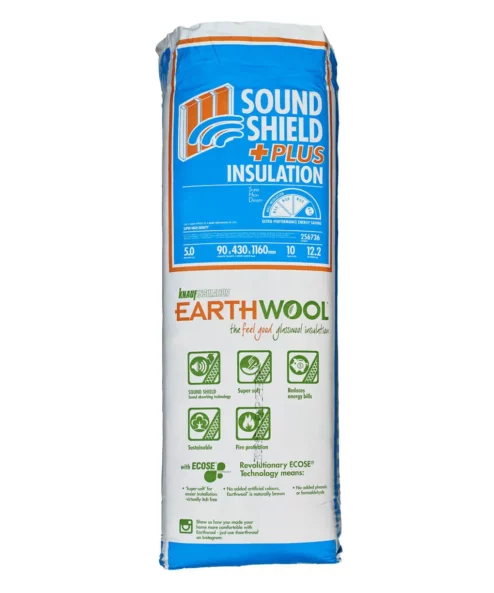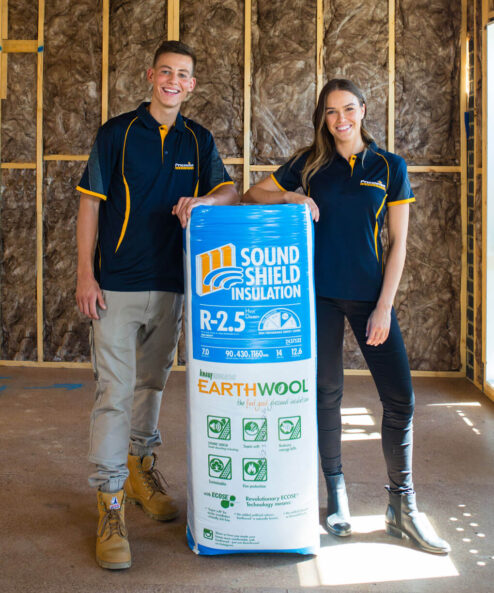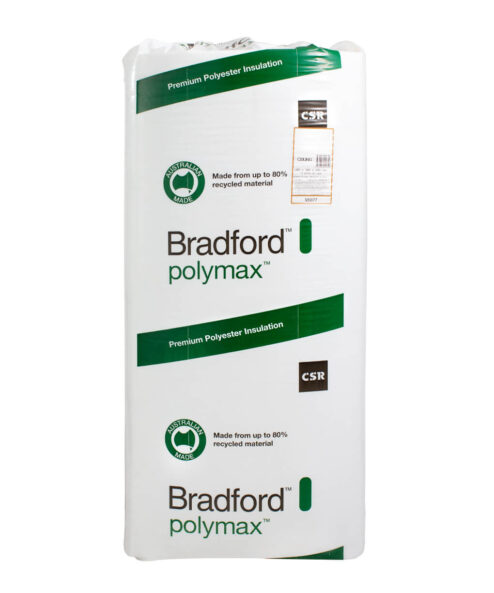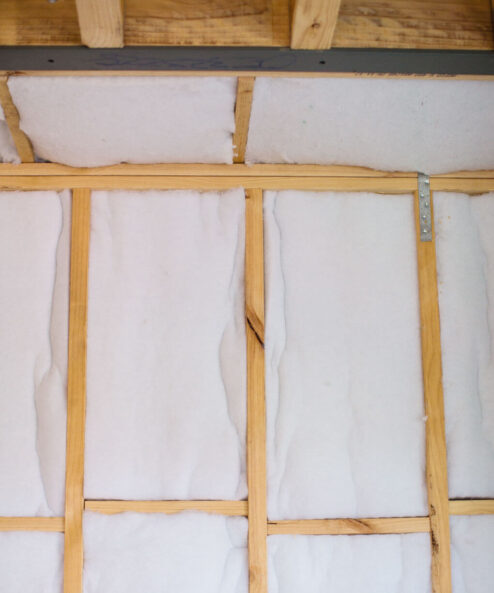Insulation Tips
7 Most Common Thermal Insulation Materials
There are many cost-effective thermal insulation materials available on the market today. Each material differs in its pricing, R-values, application and environmental impacts. Adding thermal insulation to your home minimizes winter heat losses and summer heat gains, creating stable indoor temperatures. Installing insulation can reduce your home’s energy expenses by up to half! Below is a list of the 7 most common insulation materials that are used in residential and commercial applications.
1. Glasswool Insulation
This is the most common type of insulation material used in residential, commercial or industrial applications. Glasswool is also referred to as fibreglass insulation and is made from up to 80% recycled glass material. The glass is melted in a furnace then sent through a spinner to create fibres. The glass fibres in glasswool insulation creates millions of tiny air pockets which trap air. The R-value of glasswool insulation ranges from an R1.5 for walls up to an R6.0 for ceiling applications. Glasswool insulation is relatively inexpensive in comparison to other insulation products. Glasswool thermal insulation products include; Knauf Earthwool Insulation, Fletcher Pink Batts, and Bradford thermal insulation.
Glasswool features and benefits:
- High thermal performance – year round comfort
- Non-combustible
- Saves energy – lower energy bills
- Soft to handle and install
- Lightweight, flexible and resilient
2. Earthwool Insulation
Glasswool insulation is a general category of insulation, while Earthwool insulation is a specific product that is manufactured by Knauf Insulation. However, what makes Earthwool insulation different to regular glasswool products? Earthwool insulation is manufactured using ECOSE technology which is a sustainable, renewable bio-based binder that contains no added formaldehyde. No traditional petrol-based chemicals are used. Earthwool is one of the most common thermal insulation materials used in residential, commercial and industrial applications. It is available in wall, ceiling, floor and acoustic product types.
Earthwool features and benefits:
- Low irritant product which means it is virtually itch free.
- Environmentally-friendly natural binder.
- High thermal performance – year round comfort
- Acoustic products available
- Non-combustible
- 50 year warranty
- Compression packed – more product per pack
- Odourless
3. Polyester Insulation
Polyester is manufactured from a minimum of 50% recycled PET plastics such as drink bottles which would otherwise end up in land fill. Polyester fibres are bonded together by heat and no binder chemicals are used. This gives polyester its rigid, yet flexible structure. Polyester is a popular thermal insulation material as it contains no breathable particles and is a popular choice for asthma or severe dust allergy home occupants. Polyester material is soft to touch and itch-free, making it a great DIY material for your renovation or retrofit project, as no protective clothing is required while handling it. In comparison to glasswool, polyester thermal insulation material can more expensive. However, it can be used for the same applications as glasswool material. This includes; commercial and residential buildings. The material is pre-cut to fit timer-frames studs in walls, ceilings, underfloor and mid-floor joist spacings. Examples of polyester insulation products include; Bradford Polymax, Autex Greenstuf Polyester, and Autex acoustic range (Quietspace, Etch, Workstation).
Polyester features and benefits:
- Made from recycled materials
- The product itself can be recycled
- Non-allergenic particles, breathe easier
- Non-toxic and non-irritant, safe to touch
- Non-flammable
- 50 year durability warranty
4. Rockwool Insulation
Rockwool insulation is made from rock such as basalt. Rockwool is manufactured by first melting the rock and then spinning it at high temperatures to create fibres which make up insulation batts or rolls. No binder resin is used during this process. Rockwool insulation has exceptional fire ratings as it is non-combustible, does not conduct heat and can withstand temperatures of above 1000°C. Rockwool’s ability to insulate works by trapping air in between the fibres, which restricts heat transfer. Generally, Rockwool is three times more expensive than glasswool insulation. Rockwool offers high R-values, acoustic and fire ratings. Rockwool can be used in both residential and commercial settings, although Rockwool is most commonly used in wall constructions between adjacent tenancies. Some examples of Rockwool insulation products include; James HardieFire and Bradford Fireseal.
Rockwool features and benefits:
- Highly durable
- Performance not adversely affected by water contact
- Fire Resistance
- Non-combustible
- High acoustic ratings
- High thermal performance
- 10 year warranty
5. Reflective Foil Insulation
This insulation type has a reflective surface of aluminium (or similar material). Foil insulation can allow some internal trades to commence work before the tile and cladding are applied, improving on-site work flow efficiency. Reflective foil insulation by itself only has a small R-value of around an R1.0. However, when installed correctly with a dead air space (sealed cavity with no air movement) much higher R-values can be achieved. It is dead air space that provides additional R-value, so essentially the greater the dead air space, the greater the overall R-value. Reflective foil increases the thermal insulation value of your home by reflecting heat from entering the building and can be used in commercial and residential applications. Examples of reflective foil insulation include; Kingspan air-cell range and Fletcher sisalation range.
Reflective foil features and benefits:
- Cost-effective
- Thin and lightweight, making it easy to work with and fit
- Can be used as a vapour barrier as it is unaffected by moisture
- Non-degradable and non-combustible
- It is non-toxic and non-carcinogenic, making it safer and easy to install with the use of less safety equipment
- It is very effective in warm climates where it is useful in keeping buildings cool
6. Insulation rigid boards (EPS & XPS)
Many insulation boards are designed to achieve high R-values in a narrow thickness, such as Kingspan Kooltherm, and others are designed to reflect heat like Foilboard insulation. Thermal insulation boards can create stable indoor temperatures and they minimize heat loss in winter and heat gains in summer. Insulation boards can be either a closed cell or open cell structure. Closed cell structures are harder and firmer, acting as an effective vapour barrier reducing the risk of moisture entering your home. An example of a closed cell insulation board is extruded polystyrene insulation or XPS Insulation. Open cell structure on the other hand is softer and springier, and there are air-gaps present within the thermal insulation material. An example of an open-cell insulation boards is Expanded polystyrene insulation or EPS insulation.
Insulation boards are an effective thermal insulation product for both commercial and residential developments and are suitable for a wide range of applications including:
- Roofs
- Walls
- Ceilings including cathedral ceilings
- Residential underfloor construction
- Industrial factory lining
7. Spray Foam Insulation
Spray foam is usually more expensive than most other insulation materials. It requires a blowing machine to install and usually requires a trained professional installer to use it. This means that the overall cost may be higher. Spray foam is better at sealing air leaks, preventing water leaks and minimizing mould growth. This means that the insulation is less likely to be damaged, so check-ups aren’t required as often. Foam spray has a lifespan of around 50 years, if it is kept dry. Similar to rigid boards, there are two main categories of spray foams called open-cell foams and closed-cell foams. Open cell spray foams are denser and spongier due to the air that gets inside the cells, giving it greater sound dampening effects. Open cell foam is less expensive than closed cell insulation. However, closed cell is more rigid and solid in structure making it better at keeping air and water from leaking into your home. Foam spray is an effective thermal insulation material in residential homes and is suitable for retrofit applications.
Spray foam insulation features and benefits:
- Reduce energy bills
- Airtight seal, reducing air draughts in your home
- Deters mould growth
- Long lifespan up to 50 years approx.
- Eco-friendly product

